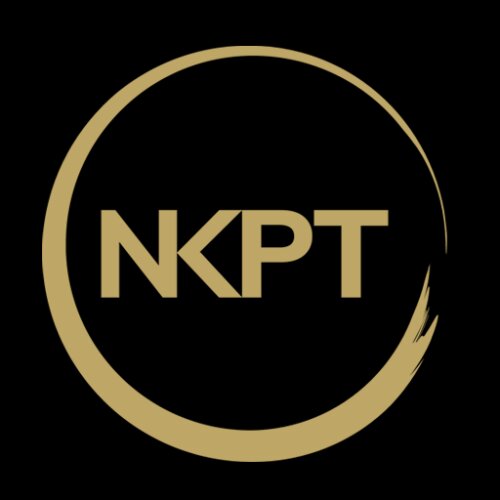Best Sanctions & Export Controls Lawyers in Malaysia
Share your needs with us, get contacted by law firms.
Free. Takes 2 min.
Or refine your search by selecting a city:
List of the best lawyers in Malaysia
About Sanctions & Export Controls Law in Malaysia
Sanctions and export controls are critical components of Malaysian law, aimed at regulating the movement of goods, services, technology, and funds in and out of the country. These legal mechanisms are designed to safeguard national security, fulfill international obligations, prevent involvement in activities that could harm global peace, and protect Malaysia's interests abroad. In Malaysia, sanctions may be imposed by local authorities as well as in line with international commitments, such as United Nations Security Council (UNSC) resolutions. Export controls specifically pertain to sensitive items, dual-use goods, strategic materials, and technology that could have military or security applications.
Why You May Need a Lawyer
Many individuals and businesses engage in international trade, unknowingly exposing themselves to risks of violating Malaysia's complex sanctions and export controls. You may require legal advice or representation in situations such as:
- Trading in sensitive or dual-use items that may be subject to export restrictions
- Providing services or financial support to entities or individuals under sanctions
- Uncertainty about compliance requirements when exporting technology or technical data
- Facing investigations, enforcement actions, or penalties by Malaysian authorities for breaches
- Setting up internal compliance programs to avoid inadvertent violations
- Seeking licenses or permits required for certain exports or transactions
- Responding to requests from foreign partners regarding Malaysia's export control regime
- Auditing business operations for sanctions compliance
A skilled lawyer can help interpret complex legislation, represent you in dealings with authorities, and provide practical guidance tailored to your situation.
Local Laws Overview
Several pieces of legislation govern sanctions and export controls in Malaysia, including:
- The Strategic Trade Act 2010 (STA) - the primary law controlling the export, transit, and brokering of strategic items, including those with military or dual-use applications. This Act prescribes licensing and registration requirements and prescribes penalties for violations.
- The Customs Act 1967 - regulates the import and export of goods more generally, imposing prohibitions or restrictions in line with government policy or international obligations.
- The United Nations Security Council Resolutions Act 2010 - enables Malaysia to implement UNSC sanctions, including asset freezes, travel bans, and trade restrictions.
- Other related regulations or government directives - these may restrict dealings with specific countries, entities, or individuals, especially in regard to terrorism financing, money laundering, and proliferation of weapons of mass destruction.
Non-compliance may result in severe penalties, including hefty fines, imprisonment, revocation of licenses, and reputational harm.
Frequently Asked Questions
What are strategic items under Malaysia's export control laws?
Strategic items refer to goods, technology, or services that have military applications or can be used for both civilian and military purposes (dual-use). The list includes, but is not limited to, arms, explosives, certain chemicals, advanced electronic devices, and related software and technology.
Who enforces sanctions and export controls in Malaysia?
The main enforcement agencies are the Ministry of International Trade and Industry (MITI), the Royal Malaysian Customs Department, and the Royal Malaysia Police, often working in coordination with other relevant bodies.
What is the penalty for violating Bahrain sanctions or export controls in Malaysia?
Violations often result in significant fines, possible imprisonment for individuals, loss of export privileges, and business disruptions. The specific penalty will depend on the nature and severity of the offence.
Do I need a license to export all goods from Malaysia?
No, not all goods require a license. However, goods listed as strategic items under the Strategic Trade Act or those subject to restrictions for sanctions reasons do require prior authorization from the relevant authorities.
What should businesses do to ensure compliance with sanctions and export controls?
Businesses should establish comprehensive compliance programs, screen their customers and business partners, keep records of transactions, and stay updated on changes to Malaysian and international laws.
Can individuals or businesses be prosecuted for unintentional violations?
Yes, the law provides for both intentional and negligent breaches. Not knowing your legal obligations does not excuse non-compliance. Intent can, however, affect the severity of penalties.
Are Malaysia's sanctions and export controls aligned with international obligations?
Yes, Malaysia implements controls in line with its commitments under international treaties, including the United Nations and, where relevant, the international non-proliferation regime.
How can I find out if a particular item is controlled under Malaysian law?
You should consult the Strategic Trade (Strategic Items) Order issued under the STA and any published guidelines by MITI. Legal advice may also be required, especially for items with dual-use potential.
What role does MITI play in export controls?
The Ministry of International Trade and Industry (MITI) is responsible for issuing permits and licenses for strategic items, providing guidance on compliance, and enforcing export control laws.
Can a lawyer help mitigate penalties for a suspected violation?
Yes, engaging legal counsel early can help in negotiating with authorities, rectifying possible breaches, and minimizing legal exposure for both individuals and companies.
Additional Resources
If you need further information or official guidance regarding sanctions and export controls in Malaysia, consider the following resources:
- Ministry of International Trade and Industry (MITI) - for licensing and regulatory guidance
- Royal Malaysian Customs Department - for queries on customs controls and procedures
- Central Bank of Malaysia (Bank Negara Malaysia) - for sanctions related to financial transactions and asset freezes
- Malaysian Bar Council - for finding qualified legal practitioners specializing in sanctions and export controls
- Official government gazettes and the Strategic Trade Secretariat for updates on new regulations or strategic item lists
Next Steps
If you believe that you or your business may be subject to or affected by Malaysian sanctions or export control laws, consider the following steps:
- Gather all relevant documentation related to your import, export, or brokering activities
- Review any correspondence or notices from regulatory or enforcement authorities
- Make a note of transaction details, including products or services involved, end-users, and counterparties
- Contact a qualified lawyer with experience in Malaysian sanctions and export controls for a detailed legal assessment
- Implement or update your compliance procedures to reduce risk of future violations
- Stay informed about changes to local and international export control and sanctions regimes
Timely legal guidance is crucial, especially when dealing with regulatory investigations or seeking clearance for sensitive transactions. Early intervention can help protect your interests and reduce potential liabilities.
Lawzana helps you find the best lawyers and law firms in Malaysia through a curated and pre-screened list of qualified legal professionals. Our platform offers rankings and detailed profiles of attorneys and law firms, allowing you to compare based on practice areas, including Sanctions & Export Controls, experience, and client feedback.
Each profile includes a description of the firm's areas of practice, client reviews, team members and partners, year of establishment, spoken languages, office locations, contact information, social media presence, and any published articles or resources. Most firms on our platform speak English and are experienced in both local and international legal matters.
Get a quote from top-rated law firms in Malaysia — quickly, securely, and without unnecessary hassle.
Disclaimer:
The information provided on this page is for general informational purposes only and does not constitute legal advice. While we strive to ensure the accuracy and relevance of the content, legal information may change over time, and interpretations of the law can vary. You should always consult with a qualified legal professional for advice specific to your situation.
We disclaim all liability for actions taken or not taken based on the content of this page. If you believe any information is incorrect or outdated, please contact us, and we will review and update it where appropriate.
Browse sanctions & export controls law firms by city in Malaysia
Refine your search by selecting a city.















